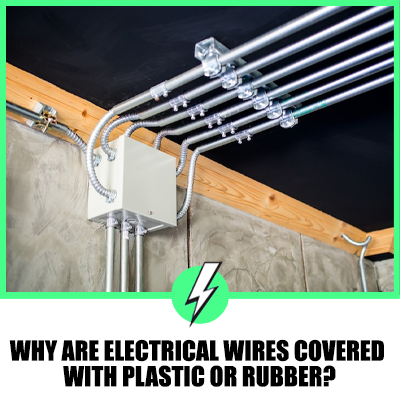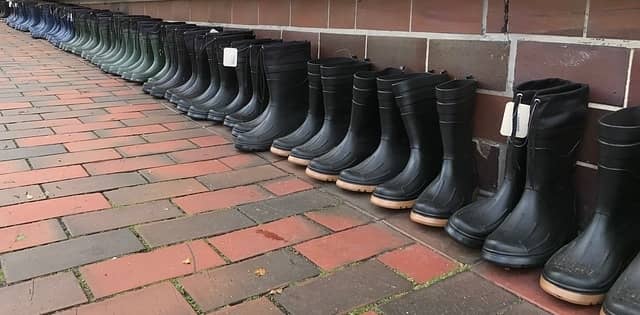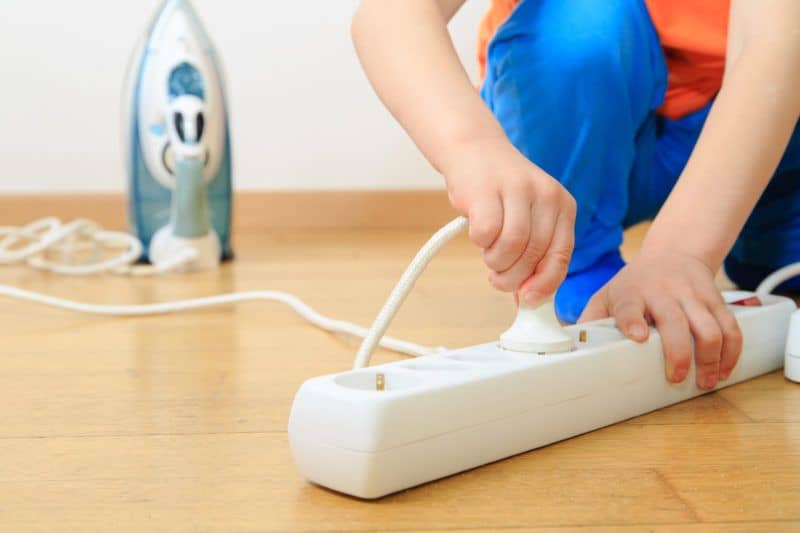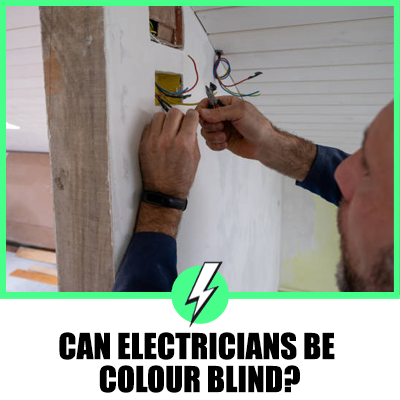Why Are Electrical Wires Covered With Plastic Or Rubber?
With so many good synthetic insulators, why go to the trouble of using expensive rubber to insulate electric cables?
Most cables are covered in rubber; pure rubber is the perfect insulator for electrical cables. If the cable is not split or damaged, it can carry thousands of volts while still being safe. Electricians working on high voltage wear rubber gloves to avoid electrocution.

Contents
What are electric cables covered with plastic or rubber?
Without an insulating cover, anyone who made contact with a bare wire would be electrocuted for insulation.
Pure rubber is an excellent insulator and can contain thousands of volts safely by encapsulating the copper wire in cables.
What are electrical cables insulated with?
EPR (Ethylene Propylene Rubber) EPR has high insulation properties for protecting electric shocks from cables. It’s used in the home and on high voltage cables.
It is a preferred choice of composite material because it’s flexible, making pulling and terminating cables much easier.
It has reasonable abrasion resistance, it has good heat resistance, oxidation and weathering resistance and has an operation range of -50℃ to 160℃
What might happen if wires were not protected with rubber or plastic?
The circuit would be broken, and current electricity flowing through a bale would become static electricity.
Plus, it would be very dangerous for anyone to come in contact with the exposed cables.
Can rubber shoes prevent you from electrocution?

It depends, electricians, working on high voltage wear boots with pure rubber soles and also wear pure rubber gloves to protect them from receiving an electric shock that could run to earth.
The rubber sole shoes you might use for walking the dog or working in will not offer much protection.
Normal rubber sole shoes have many additives and fillers placed into them at the time of manufacture.
The cheap fillers and additives are not insulators and conduct electricity making your rubber shoes as effective as wearing socks when working on electrical circuits.
Why do we use plastic as protective measures in electric wires?
Plastics are used to make the cable safe. Plastics are generally very poor conductors, making plastic the perfect choice for insulating cables.
Using plastic as an insulator to surround electric wires is cost-effective compared to expensive rubber but takes a long time to process.
Plastics can be soft and malleable, making them easy to work with, or if the cable needs to be more rigid in its construction, plastics can be modified during the mixing process.
Can the electrical wire be exposed outside?
No, an electrical wire that is exposed outside of your home is very dangerous to humans, animals and anything it comes into contact with.
If you have cables outside your home, make sure they are designed to be used outside, such as armour cables.
Better still, use a conduit to run your cables, like XLPE, which has excellent insulation and abrasion properties.
If you use a good conduit to protect your cable, you can go one step further and bury the conduit, so you remove the trip hazard.
Can you run an electric cable on the outside wall?
It depends if you want to run, say twin and earth outside, it would be against the wiring regulations. The cable would soon lose its mechanical properties and could become dangerous.
An armoured cable is a perfect choice for running cables outside; it has a protective sheath that is UV resistant and has an armoured earth cable which is required if you want to bury cables in your garden.
Can you use a flex cable outside?
No. Here is the issue with using most indoor, designed cables outdoors. They can’t handle the UV rays from sunlight. Over a short period of years, the cables degrade due to UV exposure.
What is a ceramic insulator?
You can see ceramic or porcelain insulators on the third track of the London underground. And on overhead wires from the national grid.
Porcelain does not conduct electricity or cause power to lose any of its charges.
Why are plastics used as covering material in electrical appliances?

Many appliances and household electrical items have a plastic case or part plastic case, such as the washing machine, hairdryer and many more.
The reason plastic is used is that it is easy to mould and fabricate, and its a poor conductor of electricity and heat.
What are the insulating materials that are used in cables must possess?
- High dielectric strength to avoid the electrical breakdown of the cable.
- High insulation resistance so as not to leak current.
- High mechanical strength to withstand the pulling of cables when being installed.
What are the reasons for the failure of insulation around a cable?
There are many reasons why a cable’s insulation might fail:
- Age, cables fail with age cables are constantly heating, which causes expansion and contraction that weaken the mechanical properties of the insulation over time.
- Exposure to extreme temperatures, hot and cold.
- Overcurrent will cause the cable to heat past its specification.
- UV light.
- Rodents gnaw at cables. There is something in the cable that attracts rodents.
What wire insulation is UV resistant?
PVC. Sometimes you cannot avoid using a cable where the insulation will be exposed to UV rays from sunlight.
PVC cable insulation offers some of the best properties resistant to UV light. The PVC insulation jacket is also resistant to chemicals and water, making it perfect for outdoor use.
What temperature does wire insulation melt?
Cables vary in their melting points, but if you look at PVC as an example because of all its good insulation properties, then standard PVC melts at 100℃-260℃.
However, not all PVC is made the same, and for electrical cables, the PVC blend is changed, so its melting point is 160℃-190℃.
The lower melting point is preferred to lessen the chances of combustion.





